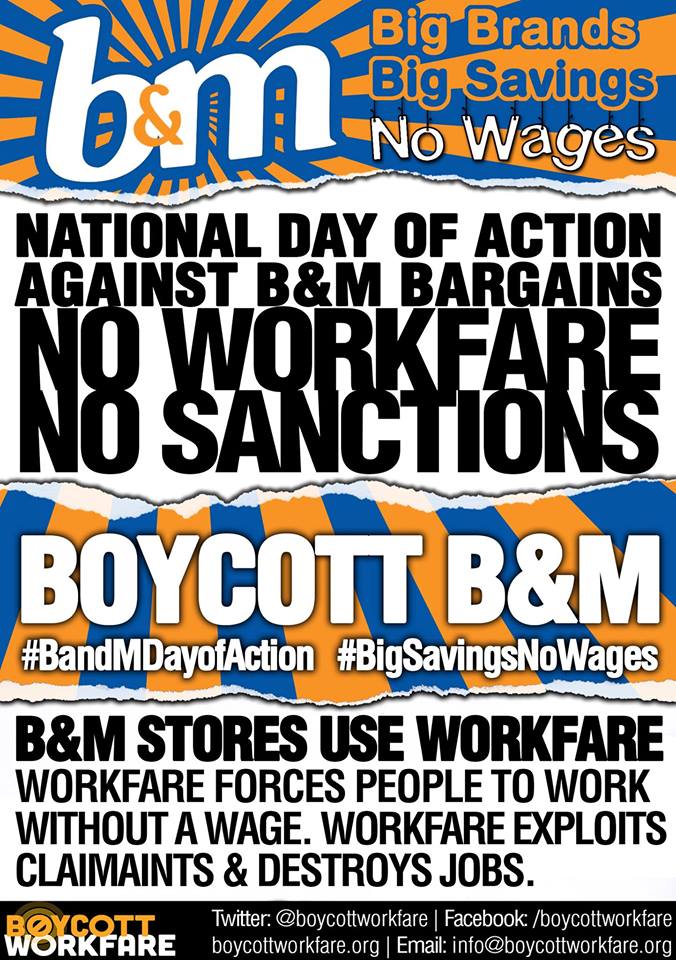Ter inspiratie: campagne tegen bedrijf in Manchester dat dwangarbeiders inzet
The last action saw an overwhelmingly positive response from the public and showed again how workfare relies to a great extent on a lack of general awareness of its very existence and what it involves for those made to participate. Large sections of the public recognise the inherent unfairness and contradictory nature of being made to work for free or lose your benefits. This has also been shown to be ineffective in achieving its own aims – the DWP’s own research points to workfare having “no impact on the likelihood of being employed”. Why B&M Bargains? B&M are a profit making company (and made over £100 million of it last year). Despite this, paid staff have found the company failing to renew their temporary contracts and cutting their hours as B&M replaces them with the unpaid labour of jobseekers. Jobseekers themselves have no choice in the matter: they must work for free or lose their benefits. These benefits (and it’s strange how often the government need reminding of this) are pay for increasingly basic necessities for themselves and any dependants – losing benefits means not being able to eat, not being able to pay bills, not being able to afford to live. However, we aren’t powerless to stop workfare. Shops like B&M rely on local customers. They rely on their ‘brand’. They will only use workfare while they think it won’t harm sales. Public protest, combined with social media campaigns, has proven very effective in getting other stores to pull out such as Homebase and Holland & Barrett. And no matter what government policy is, people can only be sent on workfare placements if there are organisations to send them to. Let’s make it impossible to do this!
Againstworkfare in #BigSavingsNoWages – 2nd day of action against B&M Stores (Boycottworkfare)

